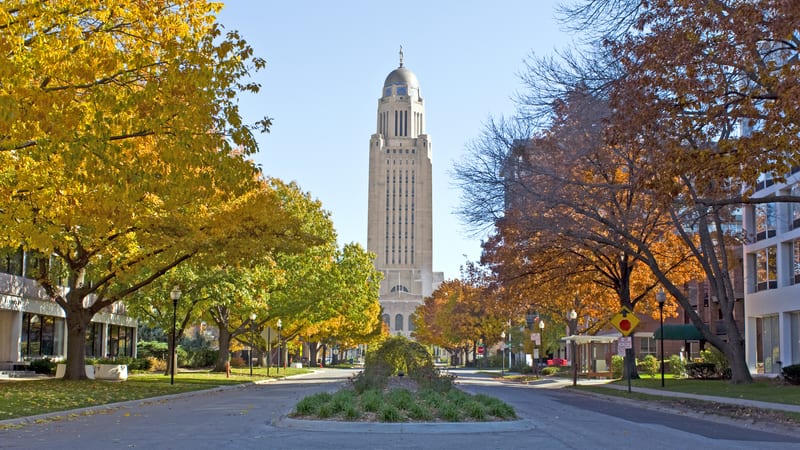In a July 24, 2020 opinion, In Re Estate of Hutton, the Nebraska Supreme Court clarified that a decedent’s estate, not the county in which the estate is being probated, is responsible for paying the personal representative’s fees.
In this case, William Daniel Hutton died intestate without a surviving spouse. The Webster county probate court granted an application filed by Hutton’s children, John Hutton and Alexis Elledge, for informal appointment as copersonal representatives of the estate.
A dispute arose between Alexis and John as to the valuation and distribution of decedent’s business.
Alexis filed a motion seeking the appointment of a new personal representative who was not a relative, due to a lack of communication and a breakdown in the relationship between the copersonal representatives over the valuation and distribution of the business assets. John and Alexis were discharged as copersonal representatives. Attorney John Hodge was appointed as successor personal representative.
Hodge inventoried the estate, and determined that John had received more assets from the estate than Alexis (despite the equal division that was supposed to occur). The estate also owed federal and state income taxes of almost $70,000.
Hodge filed an application for payment of his fees and expenses, as well as petitions for payment of the estate’s other obligations. The probate court ordered assets returned to the estate and ordered Hodge to pay court costs and outstanding taxes. Some, but not all, of the assets that were supposed to be returned were returned. Hodge used the remaining assets in the estate to comply with the order and pay court costs and taxes.
Hodge renewed his application for fees and expenses. After hearing, at which the Webster County attorney appeared and objected, the probate court found that the estate was insolvent and that the amount owed by the heirs to the Internal Revenue Service and the Nebraska Department of Revenue was likely uncollectible. The court found that “the County…shall pay the amount of $6,455.63 to…Hodge.”
The County appealed and the Nebraska Supreme Court took the case.
Who Is Responsible For Paying Personal Representative Fees In Nebraska Probate?
The Nebraska Probate Code contains statutory provisions for the payment of a personal representative’s fees.
Under the Nebraska Probate Code, a personal representative is entitled to reasonable compensation. The fixing of reasonable compensation is within the sound discretion of the county court.
Under § 30-2481 of the Nebraska Probate Code:
If any personal representative or person nominated as personal representative defends or prosecutes any proceeding in good faith, whether successful or not he is entitled to receive from the estate his necessary expenses and disbursements including reasonable attorneys’ fees incurred.
Under § 30-2482(1) of the Nebraska Probate Code, the court may review the reasonableness of the compensation determined by the personal representative for his or her own services and may order the return of excessive “compensation from an estate.”
Section 30-2487 of the Nebraska Probate Code states that “[c]osts and expenses of administration” are paid from “assets of the estate.”
Under § 30-2473 of the Nebraska Probate Code, a personal representative is liable to interested persons for damage or loss resulting from breach of his or her fiduciary duty.
These statutes expressly provide that the estate is responsible for personal representative compensation under Nebraska law (unless the personal representative is responsible in cases of breach of fiduciary duty).
In contrast, the Nebraska legislature has not expressly stated that a county is responsible for personal representative fees and compensation.
Can The County Where The Estate Is Probated Be Responsible For Personal Representative Fees?
Despite the lack of statutory authority making the County responsible for payment of an estate’s personal representative fees, does a Nebraska court have the discretion to order the County to pay personal representative fees when the estate is insolvent? The Nebraska Supreme Court answered this question with a resounding no.
The Nebraska Supreme Court reiterated the rule that costs of litigation and expenses incident to litigation may not be recovered unless provided for by statute or a uniform course of procedure.
The Court looked to guardianship cases where the courts considered whether a county could be required to pay guardianship fees, noting that “the intent of the Legislature is expressed by omission as well as by inclusion.” In those cases, where the statutes at issue were silent as to the payment of fees by the county, despite the inclusion of such an obligation in other statutes, the court determined that “the Legislature did not intend to grant a court the authority to order a county to pay the fees” in the particular case.
Extending the analysis to personal representative fees, the Nebraska Supreme Court stated:
Regarding such provisions under the Nebraska Probate Code, § 30-2620.01 permits a court to order a county to pay the reasonable fees and costs of an attorney, a guardian ad litem, a physician, and a visitor appointed by the court for an incapacitated person, if the incapacitated person does not possess an estate. Section 30-2643 permits a court to order a county to pay the reasonable fees and costs of an attorney, a guardian ad litem, a physician, a conservator, a special conservator, and a visitor appointed by the court for a protected person, if the protected person does not possess an estate. The fact that the Legislature did not expressly obligate counties to pay personal representative fees and expenses reflects a legislative intent that a county cannot be ordered to pay those fees.
Because the Court lacked the authority to order the County to pay Hodge’s personal representative fees and expenses, the Nebraska Supreme Court vacated the order granting fees and expenses.
In this case the beneficiaries received their distributions without the estate holding a large enough reserve to satisfy the obligations of the estate. While this unfortunately left the personal representative with no estate assets left to pay his fees, the insolvency of the Nebraska estate did not make the County responsible for payment of the personal representative’s fees.








